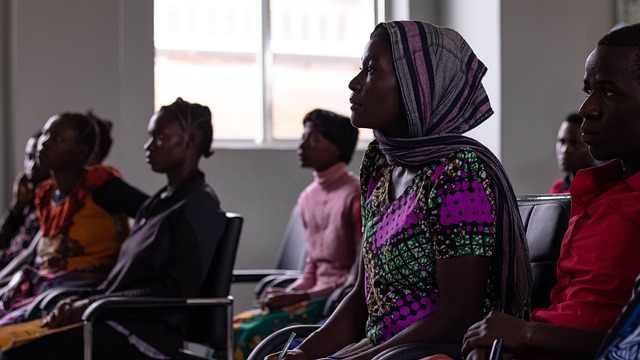Event Planning for Local Businesses is a strategic approach that enhances local business-community ties by orchestrating outreach events that are both engaging and relevant. These events serve to strengthen community bonds, amplify business visibility, and foster enduring relationships between businesses and consumers. Successful planning involves setting clear objectives aligned with both business aspirations and community interests, offering workshops, promotional deals, and active sponsorships. Collaboration among local enterprises, including joint marketing initiatives and shared event spaces, is key to expanding the variety of services and increasing visibility. Effective event planners ensure transparent communication, maintain alignment with community ethos and goals, and contribute to a vibrant local economy. By analyzing past events, choosing accessible venues, meticulously managing logistics, and consistently communicating through various platforms, small businesses can create impactful experiences that lead to increased brand loyalty and visibility. This approach not only solidifies businesses' roles within the community but also leverages collaboration for synergistic effects, ultimately benefiting all involved stakeholders through sustained economic growth and a cohesive community.
Community outreach events serve as a cornerstone for local business integration and engagement, fostering collaborative ventures that enrich both the community and participating businesses. In this article, we delve into the nuances of event planning for local businesses, offering insights on how to coordinate community engagement, craft effective outreach initiatives, and leverage collaborative efforts to build robust partnerships and networks. Join us as we explore strategies tailored for small businesses seeking to enhance their presence and contribute meaningfully to their communities.
- Coordinating Community Engagement: Strategies for Local Business Involvement
- Crafting Effective Outreach Initiatives: A Step-by-Step Guide for Small Businesses
- Leveraging Collaborative Efforts: Building Partnerships and Networks through Community Events
Coordinating Community Engagement: Strategies for Local Business Involvement

Community outreach events serve as pivotal touchpoints between local businesses and their patrons, fostering a sense of unity and shared purpose within the community. To maximize the impact of these events, strategic coordination is key. Local businesses can play a central role in event planning for local businesses by leveraging their unique resources, expertise, and customer base. A successful strategy involves identifying key objectives that align with both the business’s goals and the community’s needs. By offering workshops, sponsoring activities, or providing exclusive deals tied to the event, businesses can engage directly with consumers in a meaningful way. Moreover, these businesses should consider collaborative efforts, such as joint promotions or shared booths at events, to enhance visibility and diversify offerings. This approach not only strengthens community ties but also creates valuable networking opportunities that can lead to long-term partnerships and customer loyalty. It’s crucial for event planners to maintain clear communication with all stakeholders, ensuring that each business’s participation is beneficial and that the collective message reflects the community’s spirit and values. By doing so, local businesses can become integral to the success of community outreach events, contributing to a thriving and interconnected local economy.
Crafting Effective Outreach Initiatives: A Step-by-Step Guide for Small Businesses

Crafting effective outreach initiatives is a pivotal strategy for small businesses looking to engage with their local communities and enhance brand visibility. Event planning for local businesses should start with identifying the target audience and understanding their preferences, interests, and needs. This foundational step ensures that the events planned will resonate with the intended participants, thereby maximizing engagement and impact. A detailed analysis of past events can provide valuable insights into what has worked well before, allowing for iterative improvements to the event design.
Once the target audience is clearly defined, small businesses must focus on selecting a relevant and accessible event format that aligns with their brand identity and the community’s interests. Venue selection plays a crucial role in this process; it should be conveniently located and easily accessible to the intended attendees. The next step involves meticulous planning of the event logistics, including securing necessary permits, coordinating with vendors, arranging for marketing and promotional materials, and managing staff and volunteers. Throughout the event planning process, small businesses should prioritize clear communication channels to keep all parties informed and aligned with the event objectives. By leveraging social media, local media outlets, and community bulletin boards, these events can be effectively promoted, ensuring a successful turnout. Ultimately, the success of community outreach events hinges on careful planning, audience engagement, and a commitment to delivering a memorable experience that fosters a lasting connection between the business and the community it serves.
Leveraging Collaborative Efforts: Building Partnerships and Networks through Community Events

local businesses are increasingly recognizing the value of community outreach events as a means to foster engagement and strengthen their presence within the local market. By collaborating on these events, businesses have the opportunity to leverage shared resources and expertise, creating synergistic effects that can amplify their collective impact. These partnerships are instrumental in pooling diverse skill sets and aligning goals, leading to more effective event planning. For instance, a joint effort between a local café and a bookstore could transform a simple storytelling session into a culturally enriching experience for attendees, complete with themed refreshments and book giveaways. Such collaborations not only enhance the event’s appeal but also encourage community members to support the businesses involved. These events serve as a platform for local entrepreneurs to showcase their products and services while simultaneously giving back to the community that sustains them. The networking potential within these gatherings is immense, with attendees connecting with business owners, community leaders, and fellow patrons, thus fostering a supportive ecosystem that benefits all stakeholders involved. By strategically planning and executing these events, local businesses can build lasting partnerships and networks, which in turn can lead to sustained economic growth and a more cohesive community.
In conclusion, community outreach events serve as a pivotal platform for local businesses to engage with their customers and neighbors in meaningful ways. By adopting strategies for coordinated engagement, crafting effective initiatives, and leveraging collaborative efforts, these events not only enhance community spirit but also provide tangible benefits for the participating businesses through event planning for local enterprises. The synergy created by such ventures can lead to stronger partnerships and networks, fostering a thriving local economy and a cohesive community. These outreach initiatives are more than just gatherings; they are opportunities to create lasting connections and contribute positively to the social fabric of our towns and cities.
